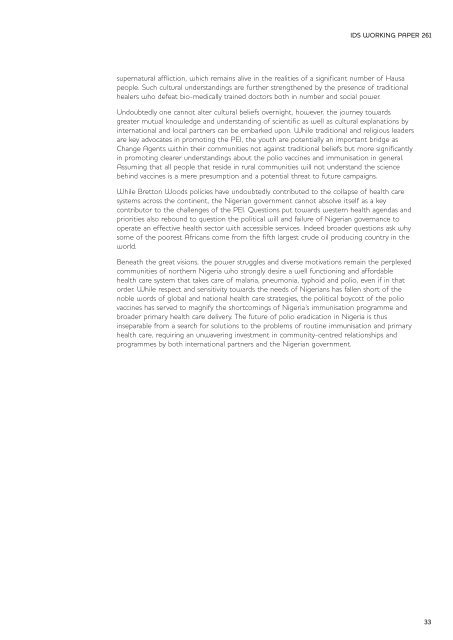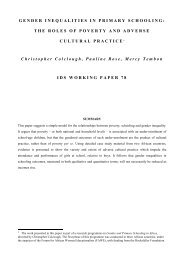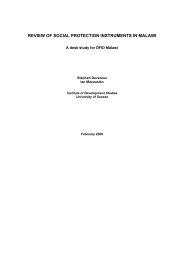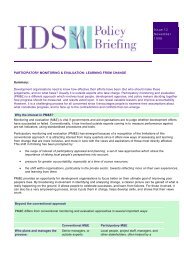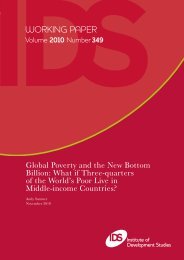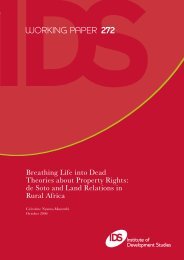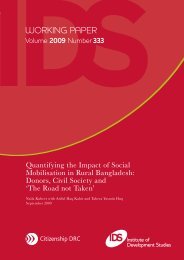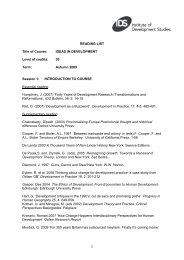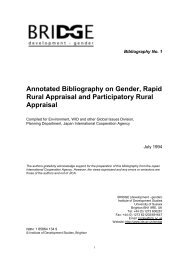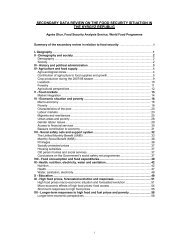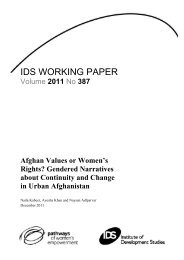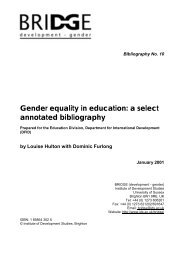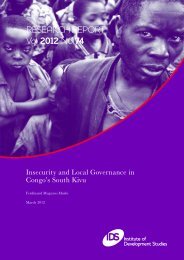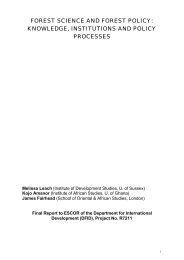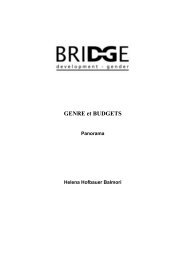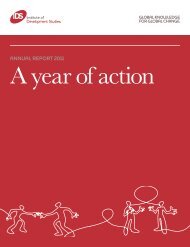WORKING PAPER 261 - Institute of Development Studies
WORKING PAPER 261 - Institute of Development Studies
WORKING PAPER 261 - Institute of Development Studies
You also want an ePaper? Increase the reach of your titles
YUMPU automatically turns print PDFs into web optimized ePapers that Google loves.
IDS <strong>WORKING</strong> <strong>PAPER</strong> <strong>261</strong><br />
supernatural affliction, which remains alive in the realities <strong>of</strong> a significant number <strong>of</strong> Hausa<br />
people. Such cultural understandings are further strengthened by the presence <strong>of</strong> traditional<br />
healers who defeat bio-medically trained doctors both in number and social power.<br />
Undoubtedly one cannot alter cultural beliefs overnight, however, the journey towards<br />
greater mutual knowledge and understanding <strong>of</strong> scientific as well as cultural explanations by<br />
international and local partners can be embarked upon. While traditional and religious leaders<br />
are key advocates in promoting the PEI, the youth are potentially an important bridge as<br />
Change Agents within their communities not against traditional beliefs but more significantly<br />
in promoting clearer understandings about the polio vaccines and immunisation in general.<br />
Assuming that all people that reside in rural communities will not understand the science<br />
behind vaccines is a mere presumption and a potential threat to future campaigns.<br />
While Bretton Woods policies have undoubtedly contributed to the collapse <strong>of</strong> health care<br />
systems across the continent, the Nigerian government cannot absolve itself as a key<br />
contributor to the challenges <strong>of</strong> the PEI. Questions put towards western health agendas and<br />
priorities also rebound to question the political will and failure <strong>of</strong> Nigerian governance to<br />
operate an effective health sector with accessible services. Indeed broader questions ask why<br />
some <strong>of</strong> the poorest Africans come from the fifth largest crude oil producing country in the<br />
world.<br />
Beneath the great visions, the power struggles and diverse motivations remain the perplexed<br />
communities <strong>of</strong> northern Nigeria who strongly desire a well functioning and affordable<br />
health care system that takes care <strong>of</strong> malaria, pneumonia, typhoid and polio, even if in that<br />
order. While respect and sensitivity towards the needs <strong>of</strong> Nigerians has fallen short <strong>of</strong> the<br />
noble words <strong>of</strong> global and national health care strategies, the political boycott <strong>of</strong> the polio<br />
vaccines has served to magnify the shortcomings <strong>of</strong> Nigeria’s immunisation programme and<br />
broader primary health care delivery. The future <strong>of</strong> polio eradication in Nigeria is thus<br />
inseparable from a search for solutions to the problems <strong>of</strong> routine immunisation and primary<br />
health care, requiring an unwavering investment in community-centred relationships and<br />
programmes by both international partners and the Nigerian government.<br />
33


